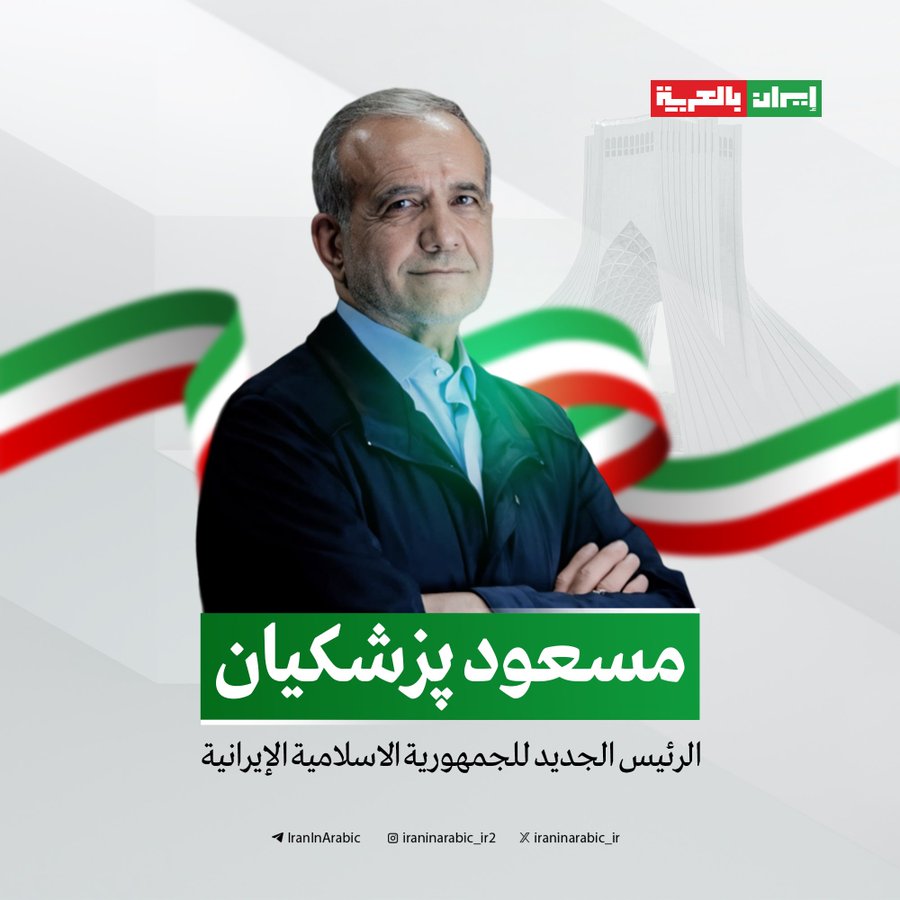Massoud Pezeshekian will take the oath of office in parliament early next month and then form a new government to implement his campaign promises.
These include reexamining the law approved by parliament in 2020, following the assassination of Mohsen Fakhrizadeh, considered the father of Iran’s nuclear program.
The bill required the government to increase uranium enrichment if the European signatories of the nuclear agreement did not ease sanctions on Iran’s oil and banking sectors. Consequently, Iran has enriched uranium to 60 percent.
This law has complicated the Biden administration’s efforts to rejoin the nuclear agreement, according to former Foreign Minister Javad Zarif.
Zarif is reportedly Pezeshekian’s leading candidate for the position of foreign minister, a move that Pezeshekian believes will facilitate progress towards a new nuclear agreement and the lifting of sanctions on Iran.
However, Zarif’s return to the role depends on approval from Supreme Leader Khamenei.
This approval is uncertain as the conservative camp in Iran accuses Zarif of “betraying Iran” by signing the original nuclear deal.
Iranian sources estimate that economist Ali Tayeb nia will be appointed as the new minister of economy.
The new government faces significant economic challenges due to American sanctions, with inflation ranging between 45 and 50 percent.
Therefore, Pezeshekian is likely to prioritize returning to the nuclear agreement, lifting sanctions, and improving relations with the West, especially European countries.
During his campaign, Pezeshekian pledged to adopt a pragmatic foreign policy to reduce tensions in negotiations to revive the 2015 nuclear deal.
Pezeshekian maintains good relations with Parliament Speaker Mohammad Bagher Ghalibaf, who opposes repealing the law passed after Fakhrizadeh’s assassination but supports negotiations with the US.
Nonetheless, the decision to return to the nuclear agreement ultimately lies with Supreme Leader Khamenei.
Israeli security sources claim that Iran is already a nuclear “threshold state,” having enriched uranium to 60 percent and possessing enough uranium to produce two nuclear bombs.
These sources indicate that Iran is now focusing on developing a nuclear explosion mechanism and mounting it on a ballistic missile, a process that could take one to two years.
Despite Supreme Leader Khamenei’s statements against the use of weapons of mass destruction and his issuance of a fatwa on the subject, President Biden is keen on finding a diplomatic solution to limit Iran’s nuclear capabilities.
The Biden administration has held secret talks with Iran in Oman and may now leverage Pezeshekian’s election to renew discussions on the nuclear agreement.
From Israel’s perspective, the situation is concerning. Even if talks on reviving the nuclear agreement resume, Iran’s secret efforts to produce a nuclear warhead for a ballistic missile are troubling and reveal Iran’s true intentions.
The new president does not have the authority to change this situation, as it is determined by the Supreme Leader and the Revolutionary Guards.




